Coalition governments are hard to fathom everywhere. But you try figuring out coalition governments in volatile Argentina. The debt-ridden country, with a centre-left Peronist coalition currently in charge, has to reschedule US$44 billion of debt with the International Monetary Fund (IMF). The Fund injected the money into the country when Maurico Macri, leader of the centre-right Juntos por el Cambio coalition, was president (2015-2019). Economy Minister Martín Guzmán, a US-trained economist, met in Washington with IMF chief Krostalina Georgieva on Tuesday. The minister, who successfully renegotiated US$65 billion of debt with private bondholders last year, is trying to clinch a new deal with the IMF. Georgieva said her meeting with Guzmán, who is trying to softly speak a language that both his progressive coalition and the financial world will understand, was “good.”
Enter Vice-President Cristina Fernández de Kirchner, leader of the coalition's powerful Kirchnerite wing. The veep on Wednesday, speaking at a gathering in Las Flores, Buenos Aires Province, to mark the anniversary of the March 24, 1976 military coup, said Argentina can't repay the IMF debt because it does not have the money. Argentina, she said. wants to pay but it needs more time and better conditions than those offered by the IMF. All political parties must reach an agreement on the issue, she added. Almost at the same time President Alberto Fernández was telling the World Bank officials that Argentina will honour its debt. Make of that what you will.
The Peronist government claims the IMF was prodded into lending Argentina an unprecedented sum by then-US president Donald Trump, who they claim was trying to do his old friend Macri a favour. The government has announced it will press charges against the former president for his acquisition and management of the debt. But at press time for this column, the urgent question was whether CFK and Guzmán are on the same team and executing some kind of coordinated play to eventually force a deal with the IMF. Before Guzmán’s goodwill trip to Washington speculation was rife that the Kirchnerite camp is no longer convinced about the minister’s ‘gently-does-it’ approach. Guzmán is trying to meet fiscal deficit targets and is seeking consensus for private utility rate hikes while talking to the IMF. But the word is the vice-president would rather not see a deal with the IMF and its demands for “structural reforms” in a crucial election year. Did she deliberately stick a finger in the pie Guzmán is so carefully trying to bake?
An IMF spokesman on Thursday said that the conditions for an Extended Fund Facility (EFF) apply to all countries that seek it and “not just Argentina.” Technical talks with Argentina continue, the spokesman said, one day after CFK’s call for better conditions. Amounts under an EFF are paid over a period of four-and-a-half to 10 years, in 12 equal semiannual installments. The Kirchnerites, apparently, want double that length.
On Thursday, both sides (at least those in Washington) sought to lower the tension. In a statement that screamed coordinated messaging, IMF staff said they had found “common understanding” with Guzmán on areas such as inflation, exports and developing domestic capital markets. The delighted minister reiterated those conclusions in a thread on Twitter.
All eyes have been on Guzmán following the resignation of Marcela Losardo, a member of the president's inner circle, as Justice minister. Losardo was purportedly forced out by the Kirchnerite camp for refusing to champion the government’s drastic reform of the judicial branch. CFK faces a number of corruption allegations in court. Her supporters claim she is the victim of an orchestrated plan to frame her, executed by conservative judges in league with Macri’s party and the press. The vice-president's defiant lip about empty pockets, with Kirchnerite Buenos Aires Province Governor Axel Kicillof by her side, will fuel further speculation about Guzmán’s future. Kicillof served as Fernández de Kirchner’s economy minister until the end of her presidential mandate in 2015. Is Kicillof a critic of Guzmán’s plan too?
The midterm elections are scheduled for October (the PASO primaries will take place in August). A victory for the government in Buenos Aires Province would boost the muscle of the coalition’s Kirchnerite wing. Can Guzmán work without any political interference when unpopular issues like food inflation, tariff hikes, and IMF conditions are at stake? It doesn't look like it. The ruling party is also poised to approve income tax breaks sponsored by Lower House Speaker Sergio Massa.
Another twist to CFK’s fiery Memory Day appearance on Wednesday was the noticeable attendance of provincial Security Minister Sergio Berni, who was sat front row, in a prime position. Berni last week criticised national Security Ministry officials over the disappearance of a seven-year old-girl named Maia, who was eventually found alive and well in Buenos Aires Province. Berni's criticism, which included nearly coming to blows with one national administration official according to report, had reportedly irked Alberto Fernández. But Berni, who has reportedly claimed that the president has requested his departure, was shown applauding Fernández de Kirchner on Wednesday.
In another significant leftward shift Argentina on Wednesday announced it was formally leaving the Lima Group of nations established in 2017 in a bid to find a negotiated and peaceful solution to the political crisis in leftist Venezuela. Argentina said it backed elections monitored by international observers but without favouring “any particular sector.” The Lima Group has worked closely with Venezuelan opposition leader Juan Guaidó, leading to the “adoption of positions that our government has not and can not stand by.” The Fernández administration said leaving the group was merely a formality.
The IMF debt is an awkward issue for the opposition in an election year especially if the Kirchnerites pump up the rhetorical volume. Everything feeds into it. Macri has released a new book and granted multiple media interviews. But he currently does not have the full support of his party, with many now backing Buenos Aires City Mayor Horacio Rodríguez Larreta, a moderate who could launch a presidential run in 2023. The Radicals, a key party in Macri’s centre-right coalition government, are also not united behind the former president.
The former president's comeback was not without a gaffe, after the coalition released a photograph showing a sleepy-faced Macri attending a Zoom political party conference virtually from his bedroom. Macri’s press office was forced to remind the party that it can no longer release pictures of the former president without his approval. Officials from the ruling Peronist coalition, including the president, had a field day cracking jokes about Macri not being a fan of waking up early in the morning, nor particularly of work. The government said it is busy managing the Covid vaccination drive while all Macri can do was criticise them in his pyjamas.
Fernández meanwhile last week warned in a national broadcast that the world was facing a “desert” of world vaccine shortages and that the situation facing Argentina is no different. Still, the flights to Moscow to bring back the Russian-made Sputnik V jab have not stopped and the negative headlines are building. The flow of vaccines is slow and Covid cases are picking up here. The embarrassing stories about VIP vaccinations continue. The president’s underlying message is that Argentina, with a highly-contagious Covid variant ravaging neighbouring giant Brazil, could be hit by a second wave that could eventually lead to new travel bans and lockdown restrictions (even when imminent decisions anticipated by Health Minister Carla Vizzotti have been denied.)






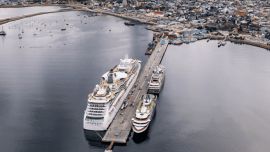
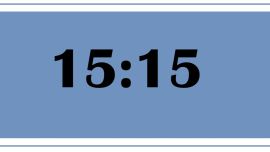








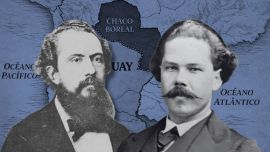
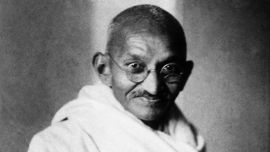

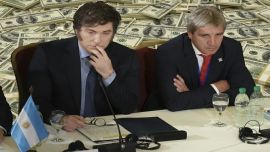
Comments